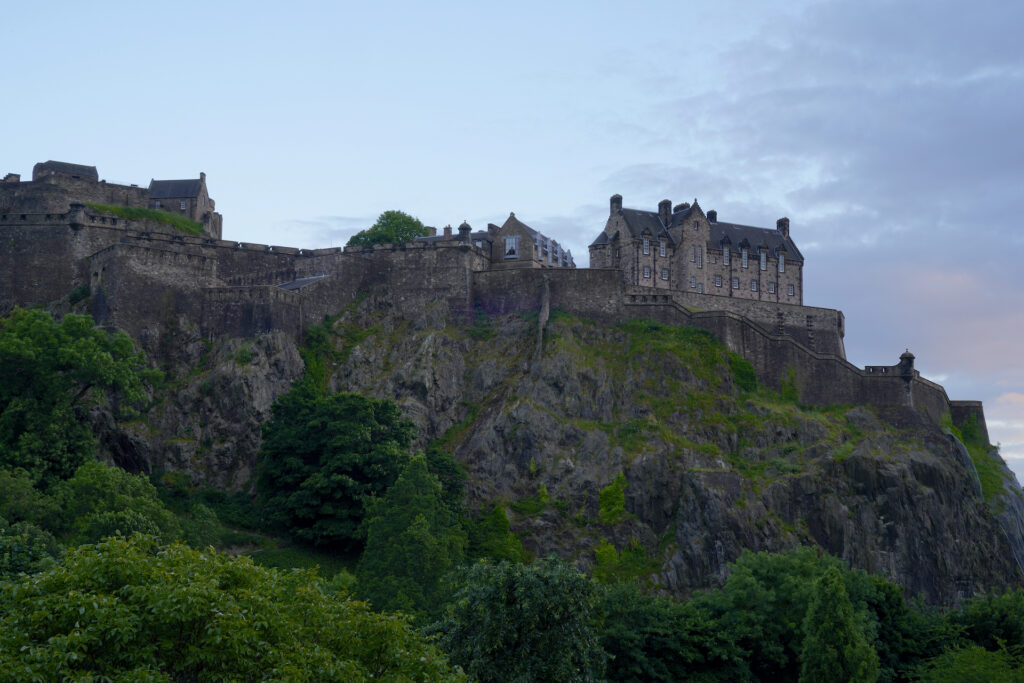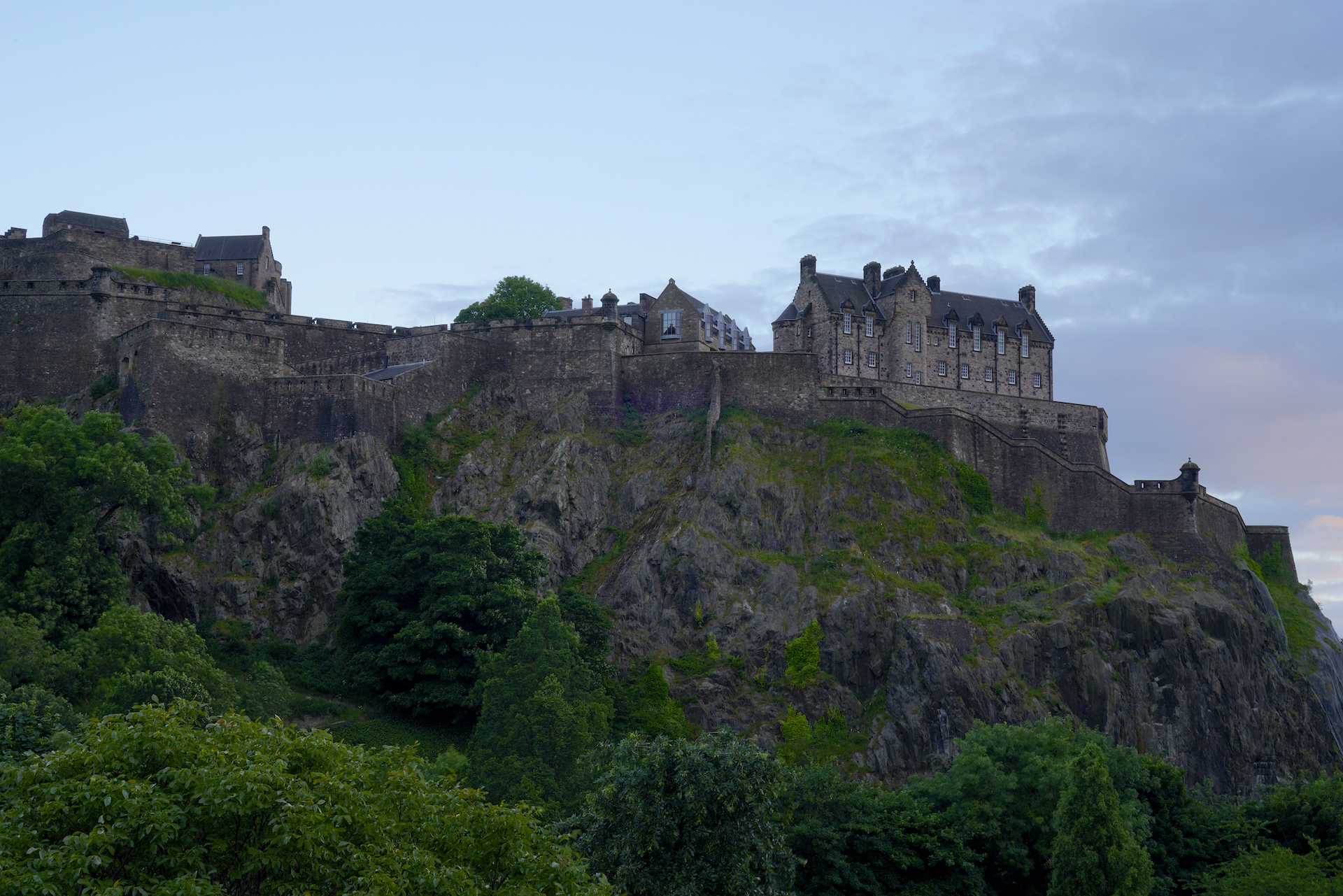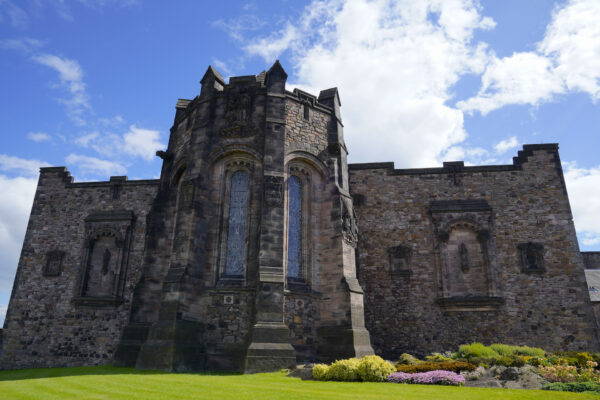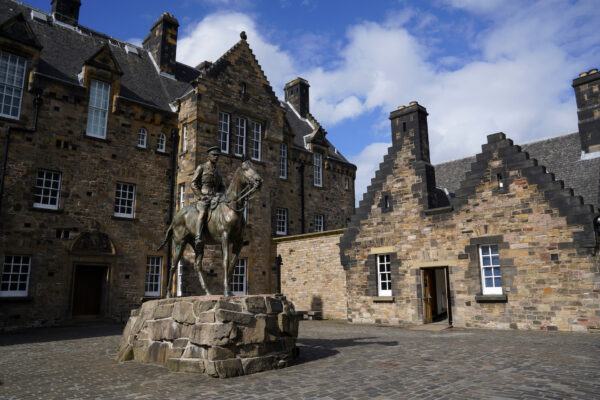Details
Cultural Attraction: Castle Ruins and Museums
Region: Edinburgh
Location: The Esplanade at Castlehill, Edinburgh EH1 2NG, Scotland, United Kingdom
Hours:
- Apr – Sept open daily 9:30AM – 6:00PM (excluding holidays)
- Oct – March open daily 9:30AM – 5:00PM (excluding holidays)
- last entry 45 minutes before closing
Pet friendly: No (service animals only)
Handicapped accessible: Yes in some areas, no in others. Generally difficult in a wheelchair.
Restrooms: Yes
DEN Rating: 8/10
Website: https://www.edinburghcastle.scot/
https://www.historicenvironment.scot/visit-a-place/places/edinburgh-castle
Standard Admission:
- Adults – $19.50
- Concession (65+) – $15.50
- Children – (7-15) – $11.40 (kids 6 & under FREE)
- Family Tickets available
Same price for advanced tickets and walk-up tickets.
Valid with Explorer Pass
Historic Scotland Membership accepted
Several partner organization passes accepted
Reservations generally required, timed entry system in place.
Audio tours are available for a charge.
Guided tours can be arranged in advance.
About Edinburgh Castle
Edinburgh Castle is perhaps Scotland’s most iconic landmark as well as its most visited single attraction with around 2.25 million visitors annually. Contained within the imposing stone walls are the country’s most treasured possessions, kept in the place where so much of Scottish history actually happened. Set atop the summit of a massive volcanic outcropping with cliffs dropping away on three sides, Edinburgh Castle’s perfect position overlooking the Firth of Forth as well the surrounding countryside (now a city of 300,000) means the castle has been an important military fortress for centuries. A visit to Edinburgh Castle is pretty much mandatory when visiting Scotland.
The history here goes back to the Iron Age when a hill fort was built on the castle site. A community developed on Castlehill over the next thousand years with Edinburgh Castle as the seat of power and location of the royal residence. The castle as we know it today took its basic form in the 1100s starting with St Margaret’s Chapel, constructed by King David I around 1130 in honor of his mother Queen Margaret who died here in 1093 and was later sainted. Today this building, found on the highest point of the rock, is the oldest in the entire city.
The back side of the Scottish War Memorial building at Edinburgh Castle is surrounded by a green lawn and pretty rock garden.
On Castlehilll
While this may appear to be part of a historic church, it is actually the back side of the Scottish War Memorial building at Edinburgh Castle. Surrounded by a green lawn and pretty rock garden near the summit of Castlehill, this space provides a softness that is often absent at most castles whose primary function … Read more
Edinburgh Castle has been beseiged more than any castle in Europe due to the turbulent past of Scotland and the frequent switching hands of the reigns of power. The battlements have been destroyed, rebuilt, and added to many times over the centuries, particularly following the Lang Siege of 1573. The castle gained increased importance when it became the principal royal residence of the Scottish Monarchy in the 15th and 16th centuries. The Great Hall was completed in 1511 for King James IV. Mary Queen of Scots ruled from here and gave birth in the royal apartments to James VI who would go on to rule England as well and Scotland, uniting the two crowns.
After unification the castle gradually transformed into a military garrison. New batteries and buildings were constructed to house the soldiers and increase the defensive strength of the fortress. The castle was also used as a jail, particularly in the late 1700s and early 1800s. Today the castle is still an active military base.
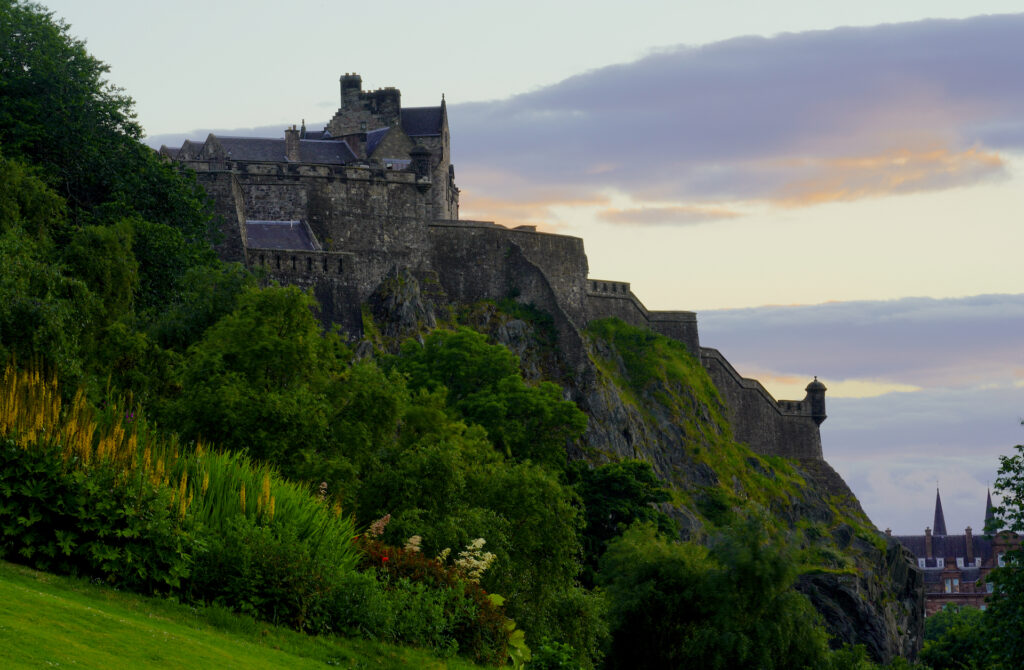
What You Will See
The entire castle complex is quite large and contains many different buildings, battlements, and squares. Guests enter by crossing the wide Castle Esplanade followed by the drawbridge and then passing through the main castle gate – a sight which is quite mighty. In the lower plaza you’ll find guest services, the gift shop, and handicapped accessible restrooms.
Follow the lane through the second gate and past the lower battlements. The main route curves up to the more ancient sections of the castle in an S shape, passing two building complexes en route. Today these buildings house a few military museums, all of which are included in your admission price. We spent an hour going through the National War Museum at Hospital Square, which had all sorts of uniforms, weaponry, documents, and objects from the long span of military history here. The One O’Clock Gun, located on the right as the lane first turns away from the cliff, fires daily except Sundays. You’ll NEVER guess when! Pay attention or you could unwittingly be in the cafe next door to it when it goes off, spilling your beverage of choice all over yourself as you shout expletives which some stranger films and plasters all over TikTok.
Edinburgh Castle is a very busy place, yet quiet moments can be found here too, like at the plaza outside the historic hospital which features this bronze statue of Earl Haig mounted on horseback. Today the hospital complex houses the Scottish War Museum.
Hospital Square at Edinburgh Castle
Edinburgh Castle is a very busy place, yet quiet moments can be found here too, like at the square outside the historic hospital which features this bronze statue of Earl Haig mounted on horseback. Today the hospital complex houses the Scottish War Museum. We had the entire square to ourselves for quite some time. The … Read more
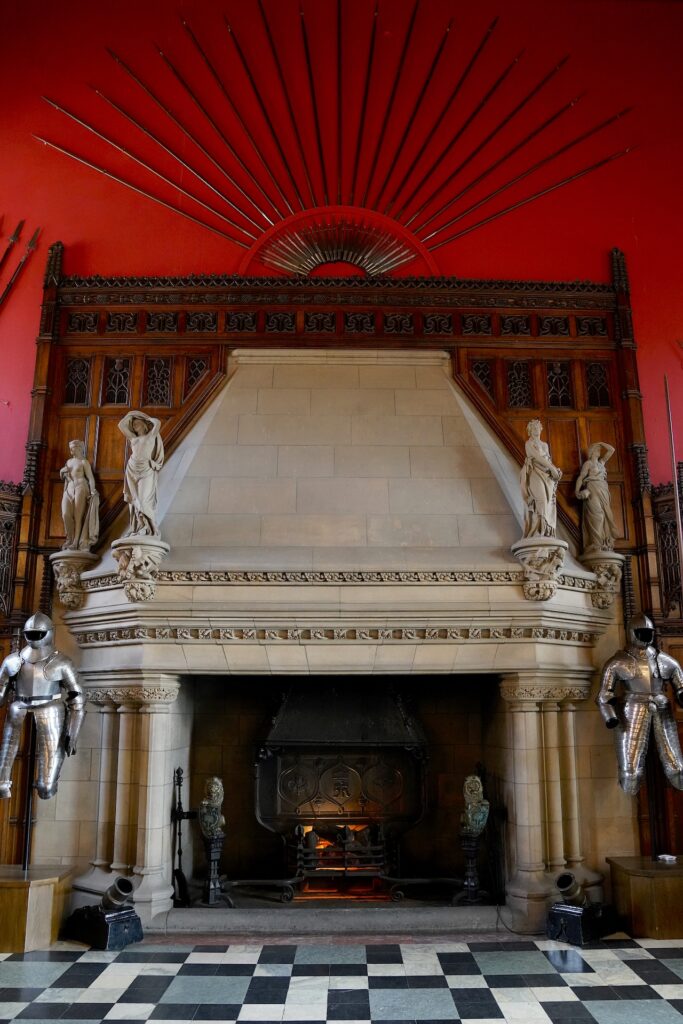
Continue steeply up through the third arched gate to the summit area of the hill. Go right to find most of the historically significant buildings including the royal apartments, Great Hall, and North Barracks all clustered together around a courtyard. The barracks now house the Scottish War Memorial, created for Scottish soldiers who perished in WWI and II. Armor and weaponry adorm the red walls of the Great Hall. And the royal apartments house The Honours of Scotland: Europe’s oldest crown, scepter, and sword of state which were first brought together at the coronation of Mary Queen of Scots. While this royal trinity is certainly dazzling, history buffs may be even more amazed by their counterpart displayed alongside them: the mythic Stone of Destiny, which has been part of coronation ceremonies here since the Scotch-Irish kingdom of Dal Riata emerged over 1500 years ago.
Also at the summit are St Margaret’s Chapel and Mons Meg, a 16th century cannon which was perhaps the most powerful and state-of-the-art weapon in existence when it was made. Continue to the end of the lane to find David’s Tower, part of the medeival battlements where the Honours of Scotland were stashed away during WWII – this space is a partial ruin so explore accordingly. When its busy there is a one way route in place – exit by heading down the Lange Stairs near Mons Meg to get back down to the lower level, then turn right.
Audio Tours
Audio tours are available for a small charge of $3.50 for adults, less for children. There is a kiosk on the right in the entry courtyard. There are a limited number of devices, but the entire audio tour can be downloaded onto your phone.
Entry Considerations
At many points during the year, especially throughout the summer, buying timed entry tickets in advance is the only way to get into the castle. It sells out completely. We visited later in the day and the crowds thinned considerably as closing time approached. There is a queue to see the Honours of Scotland but it didn’t take too long.
Facilities and Mobility Considerations
It’s a big complex so there are multiple restrooms throughout, although not all are handicapped accessible. In general this is a tough spot for a wheelchair, with a 15% grade ramp to the summit level and a lot of uneven cobblestones, plus stairs in many places.
Explore Nearby
Edinburgh is an extremely interesting city with tons to do. It would take weeks to see everything. The Royal Mile which leads up to the castle is full of possibilities, most of which are worth your time, some of which are free! Now go explore!
